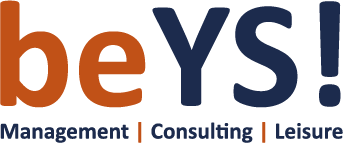The way the CFPB broke the back of the payday financing industry.
Daniel Patrick Moynihan famously had written, “Everyone is eligible for his opinion that is own to not his or her own facts.” In Washington, nonetheless, effective passions usually have entitlement to their particular facts—for the straightforward explanation which they, as well as alone, gain access to them. Whenever lawmakers and regulators sit back to create statutes or the guidelines to make sure that industries don’t cheat their clients, sully environmental surroundings, or (when it comes to banking institutions) place the entire economy at danger, the key facts they need to make use of are typical all too often selected because of the organizations and companies on their own, from proprietary data sets they control.
Experts at Exxon, as an example, knew dating back 1977 that man-made carbon emissions—such as those caused by burning petroleum products—contribute to climate modification. But rather of sharing these details with Congress or regulators, the business poured huge amount of money into phony research that is climate-denial front groups. Likewise, tobacco businesses knew as soon as the 1950s concerning the problems of cigarette smoking but decided to install a multi-decade campaign of disinformation and obfuscation. Then there clearly was the 2007 economic crisis, triggered by those activities of the “shadow-banking” system. Ahead of the crisis, federal regulators had small information regarding the dangerous actions and roles of the sector and couldn’t have controlled it whether or not that they had desired to.
Sometimes the important thing information that public officials and residents intend to make informed choices does emerge, but years after it might have been most helpful.
it absolutely was a Pulitzer Prize–winning group of investigative reporters during the website Inside environment Information that exposed what Exxon knew so when it knew it. A lawsuit brought by the U.S. Department of Justice under President Bill Clinton revealed the companies’ conspiracy in the case of tobacco.
But instead than watch for these periodic or serendipitous moments of revelation, the higher program is actually for governments to possess use of the exact same information industry has—at least towards the level so it bears on general general general public policy and welfare. That was the training lawmakers took through the financial meltdown whenever they drafted the Dodd-Frank monetary reform legislation this season.
Dodd-Frank granted federal regulators access that is broad that which was as soon as proprietary information held by banking institutions. For instance, included in the“stress that is now-mandatory” administered because of the Federal Reserve, banking institutions must reveal detailed information about their capital jobs and danger management techniques so regulators can evaluate their security.
Regulations also developed the Consumer Financial Protection Bureau (CFPB)—the first-ever federal agency aimed at managing customer lending options—and provided it expansive supervisory authority over not merely banking institutions but additionally non-bank finance institutions like lenders and payday lending outfits which had formerly escaped scrutiny that is serious. Significantly, Congress offered the CFPB “examination” authority—that is, the energy to need the info essential to carry its mission out of customer protection—as well because the ability to conduct separate research on any developments available on the market that may adversely impact customers.
Once the very first workout of its investigative and supervisory authority, the bureau in 2012 switched its places on payday financing, a business which had grown pretty much unfettered for many years while preying in the nation’s many susceptible clients. Its victims included individuals like Lisa Engelkins, whom told the middle for Responsible Lending that she paid $1,254 in interest and fees on a single $300 loan. As just one mother making lower than $8 an hour or so, she had the cash to pay for the costs but never ever sufficient to spend the key, which she rolled over into new loans an overall total of thirty-five times. Another debtor, Sandra Harris, took down new pay day loans to repay old people. She ultimately held as much as six payday advances in the time that is same spending $600 per month in costs alone.
The CFPB announced in March 2015 its intent to regulate payday lending, along with a framework for what it might do to end these kinds of abuses. It’s anticipated to propose and finalize brand new guidelines within the year that is next. Payday loan providers are bracing themselves—the industry has all but stopped growing in anticipation—and several state governments, emboldened by information dug up because of the CFPB and lots of nonprofits, have actually started breaking down.
The battle over payday lending is far from over. The industry, with over 20,600 storefronts nationwide and approximately $38 billion in yearly income, has its own effective buddies, on both edges associated with the aisle. Nevertheless, the tale of the way the CFPB broke the payday lending industry’s stranglehold on information is a very important illustration of exactly exactly exactly how federal federal government can regain leverage over industry actors who does impose their facts on the truth.
